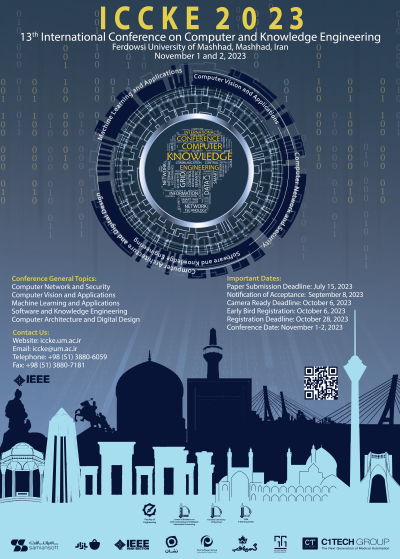0% Complete

Authors :
Keywords :
Abstract :
List of archived papers
Mohsen Raji - Kimia Soroush - Amir Ghazizadeh
Ali Salimi Sadr - Mahdi Shahbazi Khojasteh - Hamed Malek - Armin Salimi-Badr
Javad Dogani - Farshad Khunjush
Mansour Davoudi - Mohammad Reza Moosavi - Mohammad Hadi Sadreddini
Zahra Ebrahimian - Seyed Ali Mirsharji - Ramin Toosi - Mohammad Ali Akhaee
Amirhossein Ghaemi - Habibollah Danyali - Alireza Ghaemi
Mahshad Hashemi - Eghbal Mansoori
Mohammad Heydari - Ali Bayat - Amir Albadvi
Mohammed Wadi - Wisam Elmasry - Ismail Kucuk - Hossein Shahinzadeh
Mohammad Hajizadeh - Adel Rahmani - Mohammad Sabokrou




